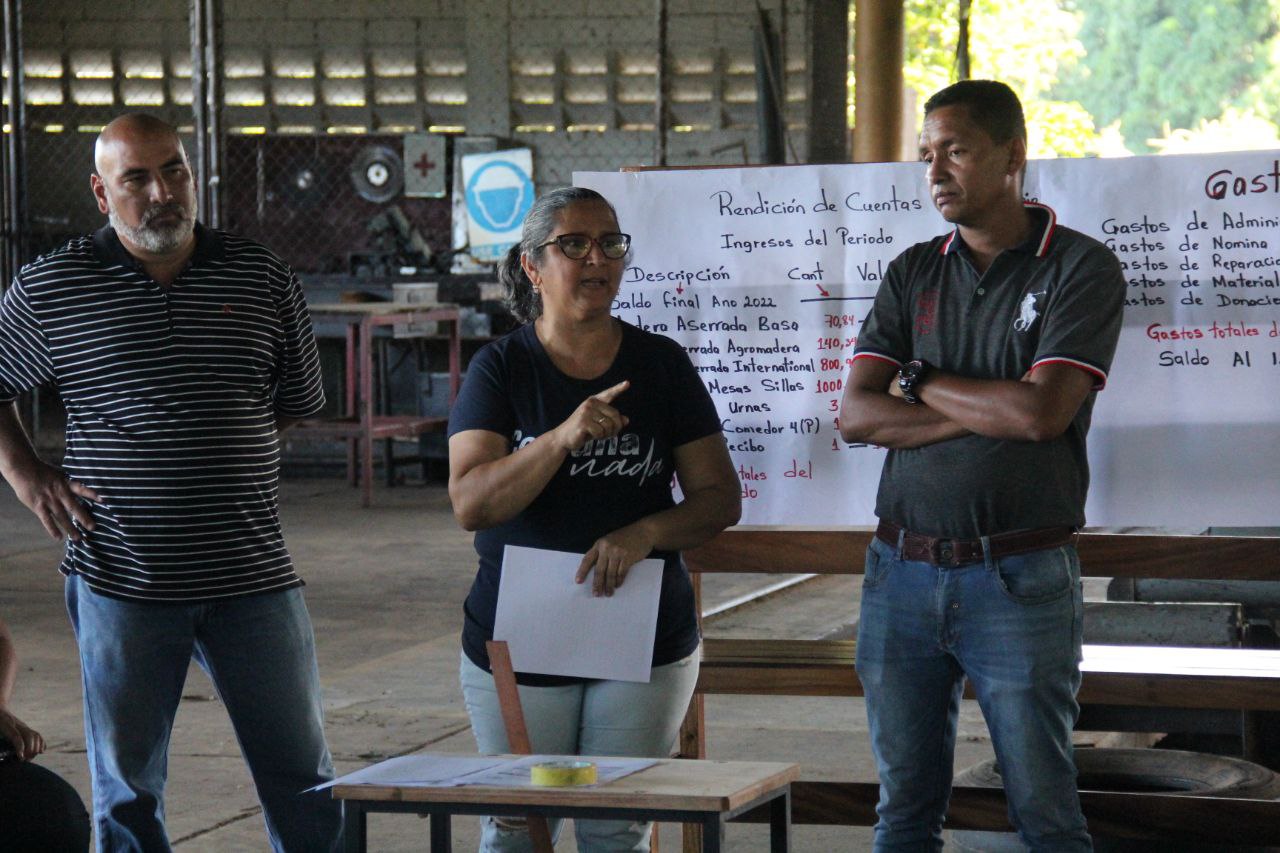Barinas, July 15, 2023 (Mincomunas Press) – The Indirect Communal Social Property Company (EPS) “Renacer de Chavez,” operating in the wood sawmill and carpentry in Barrancas, Cruz Paredes municipality capital of Barinas State, produces 1,000 tables and chairs for the schools of the entity and shelves for future stores of the brand Hecho en Comuna (Made in Commune).
In addition, it produces urns to donate to the people in most need, consolidates a communal management model, where the Brisas del Masparro Commune, responsible for its administration, progressively organizes, manages, and makes the decisions of the sawmill.
The Vice-Minister of Communal Economy of the People’s Power Ministry for the Communes and Social Movements, Hernan Vargas, informed this on Saturday, who toured its facilities and held an assembly with the producers, workers, and People’s Power of the Point and Circle, in whose territory there are three other Communes.
He indicated that in the meeting, the administration unit of the EPS publicly rendered accounts of the management developed in the first semester of the year about the payment of the workforce, purchase of materials for the production the carpentry, expenses for the maintenance of the machinery, internal administrative processes, community donations, and other concepts.
Vargas pointed out that in the assembly, they raised goals and challenges. They agreed on the importance of reactivating the citizens’ assemblies with greater impetus and on the possibility of reaching agreements with the workers to guarantee better conditions in labor safety and social protection, but also with conscious planning of workers and producers on issues such as the approach to the rainy season when the sawmill level drops.
Another challenge that emerged from the exchange of ideas was the need to build a communal economic plan, in which the sawmill is an engine, a relevant axis, “but which allows activating and moving on to another level, in which a Communal Wood Bank activates, enabling the producers of the territory to progressively have access not only to the basic things they need, such as food and clothing but also to inputs for production, in a scheme where planning is joint and aims at satisfying the needs of the point and circle.”



